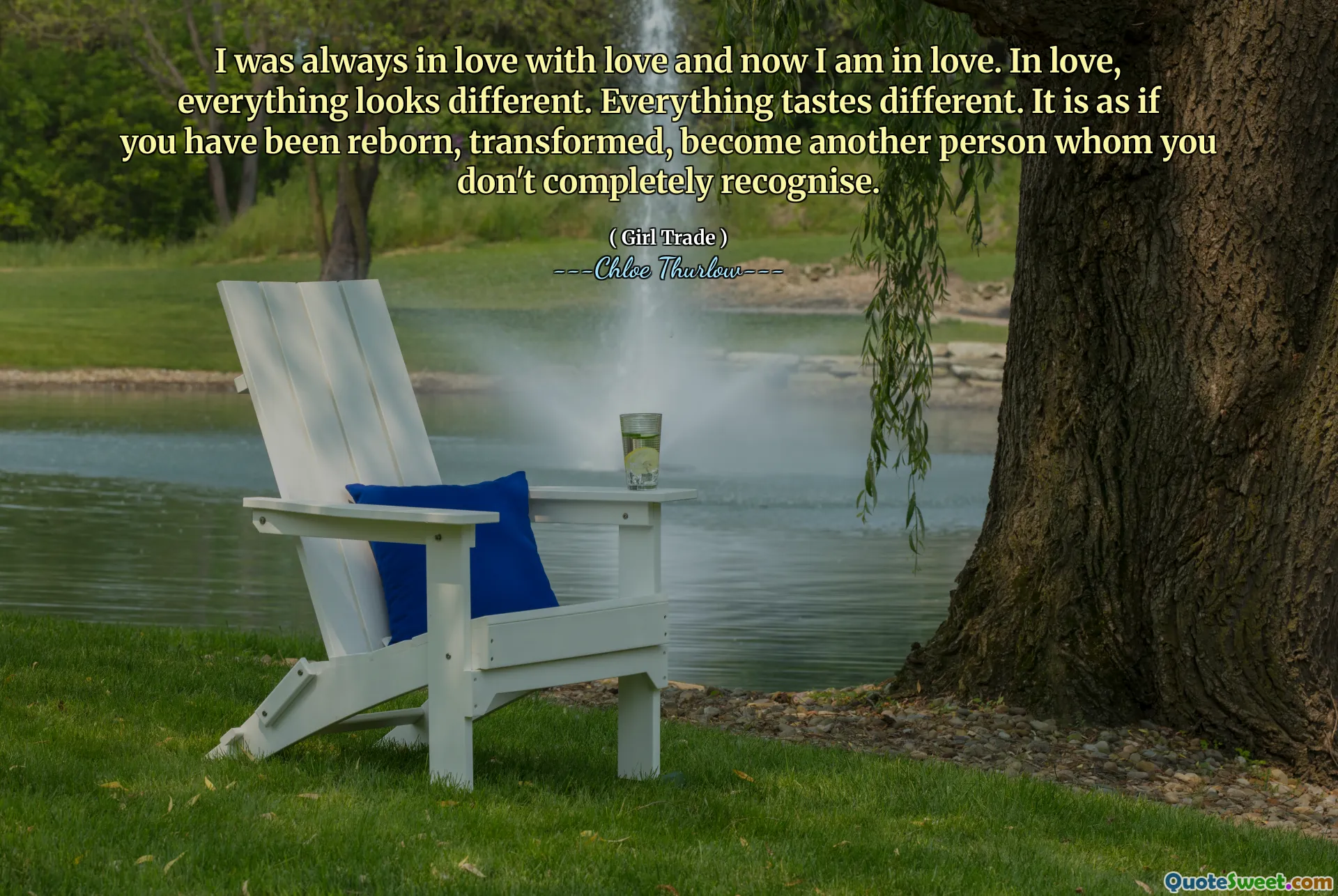
I was always in love with love and now I am in love. In love, everything looks different. Everything tastes different. It is as if you have been reborn, transformed, become another person whom you don't completely recognise.
This quote beautifully captures the profound transformation that love can bring into a person's life. The initial line speaks to a common human experience—being enamored with the idea of love itself, perhaps fascinated by the romance and connection it promises. This abstract love might be more about ideals and fantasies. But the shift occurs when the author says, 'and now I am in love,' suggesting the tangible, lived experience of love which transforms perception in a deep and meaningful way.
The notion that love alters one's senses is particularly striking. To say that "everything looks different" and "everything tastes different" poetically conveys that love permeates all aspects of life. It redefines everyday experiences and infuses them with new meaning and emotional intensity. This is not just about seeing the world more vividly; it suggests a fundamental shift in how life itself is felt and understood.
The idea of being "reborn" or "transformed" ties into the theme of love as an agent of personal growth and change. Love, in this context, catalyzes a form of self-discovery and reinvention, leading to a profound internal change. Yet, the ambiguity in "become another person whom you don't completely recognise" acknowledges the sometimes unsettling aspect of this transformation – the tension between growth and loss of familiarity with oneself.
Overall, the quote encapsulates the mystique and power of love in reshaping identity, perception, and experience. It portrays love not just as an emotion but as a compelling force that redefines our sense of reality and self.






